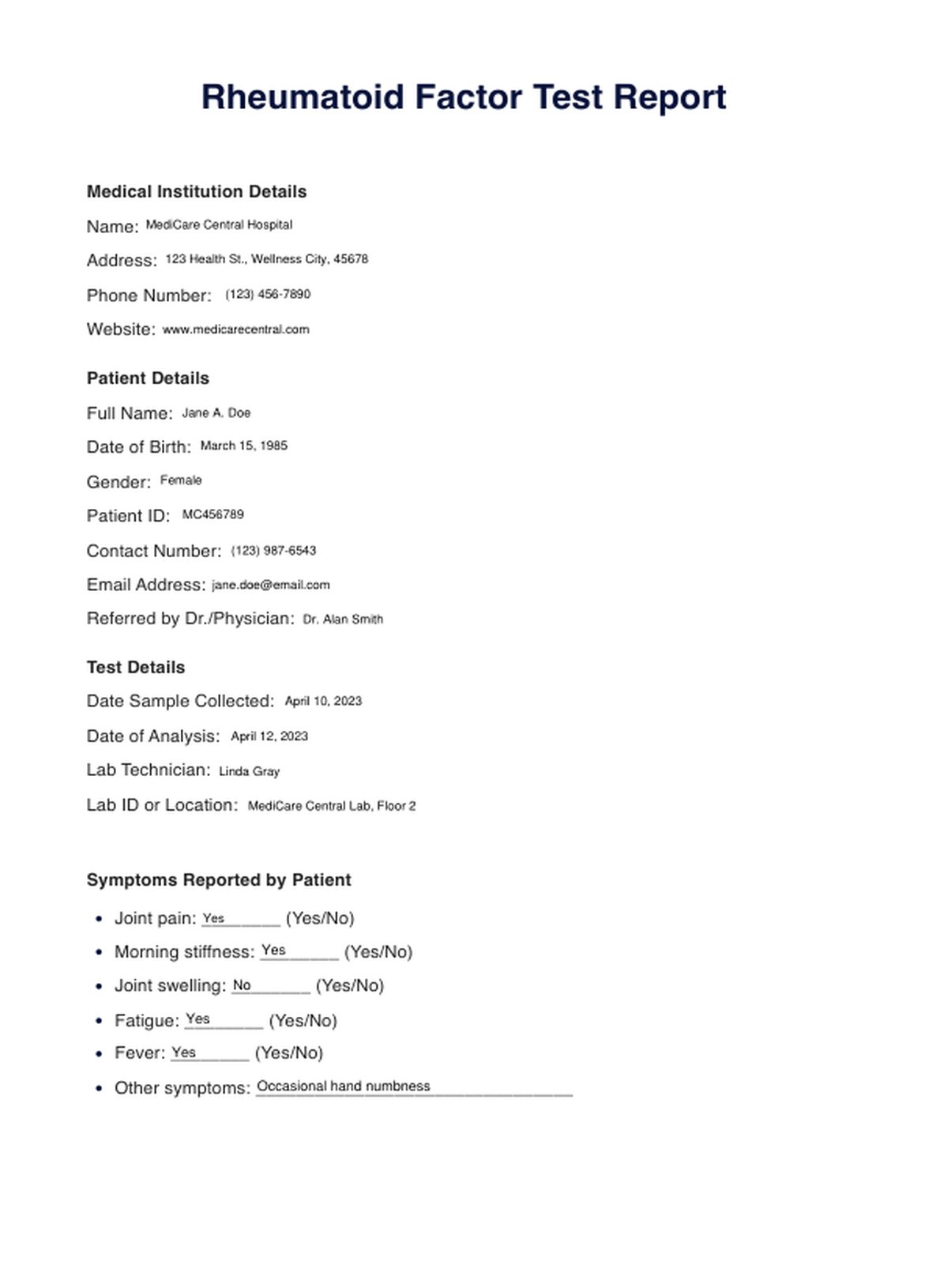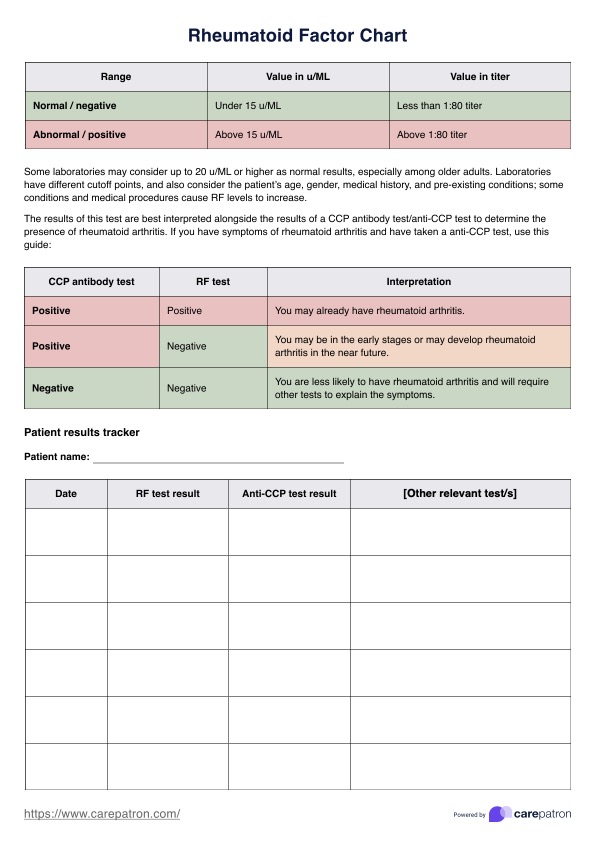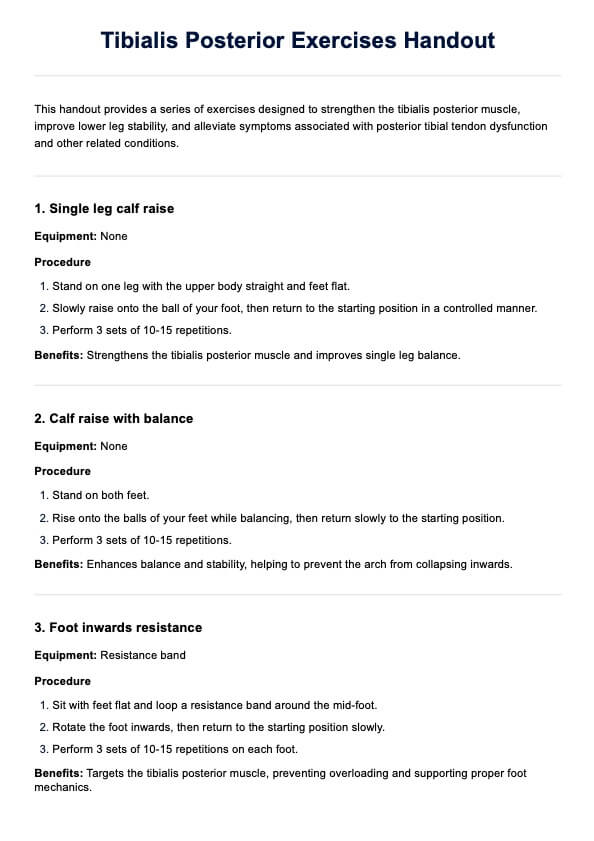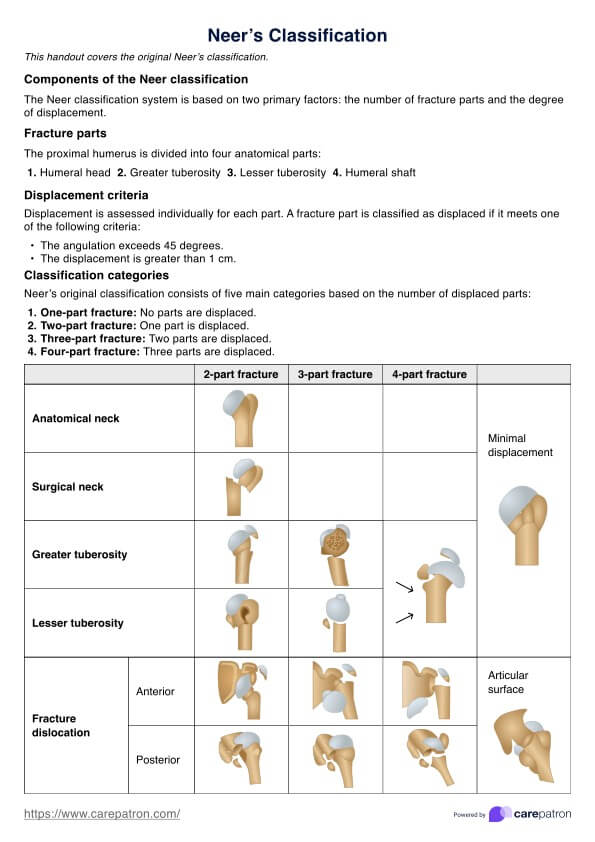Rheumatoid Factor
Discover the Rheumatoid Factor Test's significance in diagnosing arthritis. Dive into its accuracy, application, and importance in modern healthcare.


What is a Rheumatoid Factor Test?
The Rheumatoid Factor (RF) Test is a diagnostic blood assay specifically designed to identify the presence of rheumatoid factor. This antibody often circulates in the bloodstreams of individuals with rheumatoid arthritis (RA). This test plays a pivotal role in the diagnostic journey of RA, a chronic autoimmune disorder that primarily affects the joints, causing inflammation, pain, and potential joint damage.
While RF is commonly associated with RA, its presence is not exclusive to this condition. RF can be detected in individuals with other autoimmune disorders and some healthy individuals. This makes the interpretation of the RF test a bit nuanced. Not all RA patients will have elevated RF levels, and conversely, a positive RF test doesn't conclusively diagnose RA.
However, when used in conjunction with other clinical evaluations, symptom assessments, and laboratory tests, the RF test becomes a valuable tool in the diagnostic arsenal of healthcare professionals. It helps differentiate RA from similar conditions, providing a clearer path for treatment and management.
Rheumatoid Factor Template
Rheumatoid Factor Example
How does it work?
The Rheumatoid Factor Test is a systematic process that aims to detect the presence and concentration of rheumatoid factors in the blood, aiding in diagnosing rheumatoid arthritis and other autoimmune conditions. Here's a step-by-step breakdown of the procedure:
Blood Sample Collection
The initial step involves drawing a blood sample. A healthcare professional, usually a phlebotomist or nurse, will clean an area on the arm and insert a needle into a vein to collect a small amount of blood. This procedure is quick and causes minimal discomfort.
Laboratory Analysis
Once collected, the blood sample is transported to a specialized laboratory. Here, advanced equipment and techniques are employed to analyze the sample, specifically measuring the concentration of rheumatoid factor antibodies.
Result Interpretation
Medical professionals then interpret the laboratory results. A higher concentration of RF in the blood can indicate rheumatoid arthritis or other autoimmune disorders. However, it's essential to understand that elevated RF levels alone don't confirm a diagnosis. They are typically considered alongside other clinical findings and test results.
Consultation
After receiving the test results, patients will consult with their healthcare provider. This discussion is crucial to understanding the implications of the RF test results, potential diagnoses, and the recommended next steps in treatment or further testing.
For those who prefer a tangible record of their test procedure and results, our Printable Rheumatoid Factor Test is available, ensuring patients have easy access to their medical information.
When would you use this test?
The Rheumatoid Factor (RF) Test is a pivotal diagnostic tool in rheumatology and is employed in various clinical scenarios. Its primary application is in the context of rheumatoid arthritis (RA), a chronic inflammatory disorder that can affect more than just the joints. Here are some specific instances when this test becomes indispensable:
- Suspecting Rheumatoid Arthritis: When a patient presents with joint pain, swelling, and stiffness, especially in the hands and feet, an RF test might be one of the first diagnostic tests ordered. These symptoms, although indicative of RA, can also be seen in other conditions. The RF test helps narrow down the diagnosis.
- Differentiating RA from Other Arthritic Conditions: There are numerous types of arthritis, each with its unique causes and symptoms. The RF test aids in distinguishing RA from other forms of arthritis, such as osteoarthritis or lupus, ensuring that the patient receives the most appropriate treatment.
- Evaluating RA Severity: In patients already diagnosed with RA, the RF test can provide insights into the disease's progression. Elevated RF levels might correlate with more severe disease manifestations, helping healthcare providers tailor their therapeutic approach.
- Monitoring Treatment Efficacy: For those undergoing treatment for RA, periodic RF testing can be a valuable tool to gauge the effectiveness of the treatment regimen. A decreasing RF level might indicate a positive response to therapy.
The Rheumatoid Factor Test is not just a standalone diagnostic tool but a critical component of a comprehensive clinical evaluation, guiding both diagnosis and treatment decisions in patients with suspected or confirmed rheumatoid arthritis.
What do the results mean?
The Rheumatoid Factor (RF) Test provides valuable insights into the presence of RF antibodies in the bloodstream. However, interpreting these results requires a nuanced understanding, as the presence or absence of RF isn't solely indicative of rheumatoid arthritis (RA). Here's a breakdown of what the results typically signify:
Positive RF Test
A positive result means that RF antibodies are present in the blood. While this is commonly associated with RA, it's crucial to note that RF can also be found in individuals with other autoimmune disorders, such as lupus or Sjögren's syndrome. Additionally, a small percentage of healthy individuals might also test positive for RF without any underlying disease. Therefore, a positive RF test, while suggestive, is not conclusive evidence of RA.
Negative RF Test
A negative result indicates the absence or undetectable levels of RF in the blood. However, this doesn't categorically rule out RA. Some patients, especially those in the early stages of RA, might not produce enough RF to be detected. Furthermore, a subset of RA patients, termed "seronegative," never produce RF. Hence, a negative RF test should be interpreted with other clinical evaluations and diagnostic tests.
Levels and Severity
While the mere presence or absence of RF provides some information, the actual levels can also be indicative. Higher RF levels might correlate with more severe RA manifestations, although this isn't always true.
While our Free Rheumatoid Factor Test offers a valuable piece of the diagnostic puzzle, it's essential to view its results as part of a broader clinical picture. Other signs, symptoms, and diagnostic tests are pivotal in arriving at an accurate and comprehensive diagnosis.
Research & Evidence
The Rheumatoid Factor (RF) Test, since its inception, has played a transformative role in the field of rheumatology, particularly in diagnosing rheumatoid arthritis (RA).
Historical Context
The discovery of the rheumatoid factor marked a significant advancement in understanding autoimmune diseases. Historically, diagnosing RA was challenging due to the overlap of its symptoms with other conditions. The introduction of the RF test provided a more targeted approach to diagnosis, although it was soon recognized that it should be one of several diagnostic criteria.
Clinical Validation
Over the decades, many research studies have been conducted to ascertain the efficacy of the RF test. While its sensitivity and specificity can vary, the consensus in the medical community is that the test, when used in conjunction with other diagnostic tools, offers valuable insights. For instance, a study published in the Journal of Rheumatology highlighted the test's role in diagnosing RA but emphasized the importance of clinical judgment and other diagnostic criteria.
Modern Adaptations
As medical science has advanced, so has the understanding of the RF test's limitations. This has led to developing other biomarker tests, such as anti-CCP, to complement the RF test in diagnosing RA. The combination of these tests offers a more comprehensive diagnostic approach.
The Rheumatoid Factor Test, while not without its limitations, remains a cornerstone in RA diagnosis. Its enduring relevance is a testament to its utility, but it's imperative to view its results within a broader diagnostic framework.
References
Journal of Rheumatology. (2019). The Role of Rheumatoid Factor in Diagnosis and Prognosis of RA.
Mayo Clinic. (2022). Rheumatoid Factor Test: Overview. Retrieved from https://www.mayoclinic.org/tests-procedures/rheumatoid-factor/about/pac-20384800
MedlinePlus. (2022). Rheumatoid Factor (RF) Test. Retrieved from https://medlineplus.gov/lab-tests/rheumatoid-factor-rf-test/
Commonly asked questions
Rheumatologists, general practitioners, or other healthcare professionals when RA is suspected.
As part of a comprehensive diagnostic process, often in conjunction with other tests and clinical assessments.
The Rheumatoid Factor Test is quick, but results might take several days, depending on the laboratory.

.jpg)










































































































